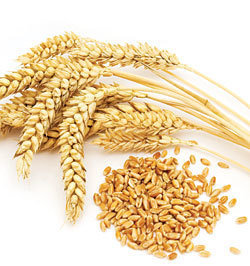
Celiac Disease: Understanding Gluten's Role and Effective Treatment Strategies
Celiac disease is an autoimmune disorder that affects approximately 1% of the population globally. It is triggered by the consumption of gluten—a protein found in wheat, barley, and rye—which leads to damage in the small intestine and hinders nutrient absorption. The condition can cause a wide range of symptoms, from digestive problems to neurological issues. Early diagnosis and a strict gluten-free diet are crucial for managing the disease and avoiding long-term health complications. This section aims to delve into the complexities of celiac disease, offering insight into its causes, the critical role gluten plays, and the most effective treatment strategies for those affected.
Celiac disease is an autoimmune disorder where the ingestion of gluten leads to damage in the small intestine. Gluten, a protein found in wheat, barley, and rye, triggers an immune response in individuals with celiac disease that damages the villi, small fingerlike projections lining the small intestine. These villi are crucial for nutrient absorption; when damaged, malabsorption can lead to various nutritional deficiencies and associated health problems. Understanding the role of gluten in celiac disease is fundamental to managing this condition effectively.
The Role of Gluten in Celiac Disease
In individuals with celiac disease, gluten acts as a trigger for the immune system. Instead of recognizing gluten as a harmless protein, the immune system perceives it as a threat, leading to an inflammatory response that damages the small intestine's lining. This damage impairs the body's ability to absorb nutrients, causing symptoms and potentially leading to long-term health issues if untreated.
Symptoms of Celiac Disease
Symptoms of celiac disease can vary widely and may include digestive problems (such as abdominal pain, diarrhea, and bloating), anemia, loss of bone density, itchy skin rash, mouth ulcers, headaches, fatigue, and joint pain, among others. Some individuals may have silent celiac disease, presenting no symptoms despite having damage to their small intestine.
Effective Treatment Strategies
Currently, the only effective treatment for celiac disease is a strict, lifelong gluten-free diet. Adhering to this diet allows the intestinal lining to heal, preventing further damage and alleviating symptoms. The key components of managing celiac disease through diet include:
- Eliminating Gluten: All sources of gluten — wheat, barley, and rye — must be eliminated from the diet. This includes obvious sources like bread and pasta, as well as less apparent ones such as sauces, some processed foods, and certain medications or supplements that may use gluten as a binder or filler.
- Choosing Gluten-Free Alternatives: Many gluten-free alternatives to common foods are available, including bread, pasta, and cereals made from gluten-free grains such as rice, corn, quinoa, and buckwheat.
- Avoiding Cross-Contamination: Even small amounts of gluten can trigger symptoms and intestinal damage. It's important to avoid cross-contamination in the kitchen by using separate cooking utensils and appliances for gluten-free foods and being cautious when eating out or purchasing processed foods.
- Nutritional Support: Initially, individuals with celiac disease may require supplementation to address any nutritional deficiencies caused by malabsorption. Working with a dietitian who specializes in celiac disease can help ensure that the gluten-free diet is not only free of gluten but also nutritionally balanced.
- Regular Medical Follow-Up: Regular follow-up appointments with a healthcare provider are important to monitor the healing of the intestine, the effectiveness of the gluten-free diet, and to check for potential complications associated with celiac disease.
Monitoring and Managing Potential Complications of Celiac Disease
Even with a strict gluten-free diet, individuals with celiac disease should be vigilant about potential complications that can arise. These complications might include conditions like osteoporosis due to malabsorption of calcium and vitamin D, iron-deficiency anemia from poor absorption of iron, and fertility issues. Additionally, there is an increased risk of developing other autoimmune disorders and, though rare, an elevated risk of intestinal lymphoma. Regular monitoring through blood tests to check for vitamin and mineral deficiencies, bone density scans, and endoscopic evaluations can help manage these risks. It's also critical for patients to stay informed about their condition and engaged in their healthcare, including awareness of any changes in symptoms that may signal a need to adjust their treatment plan.
Conclusion
Celiac disease requires careful management through a strict gluten-free diet to prevent damage to the small intestine and alleviate symptoms. While adapting to a gluten-free lifestyle can be challenging initially, it is essential for individuals with celiac disease to avoid gluten completely. With the right resources, support, and careful dietary planning, people with celiac disease can lead healthy and fulfilling lives.
